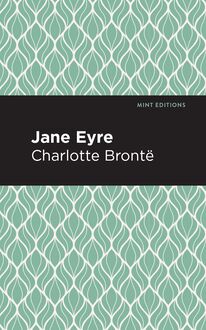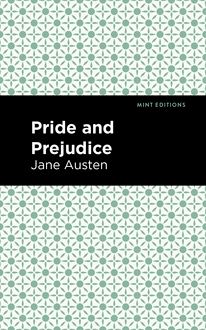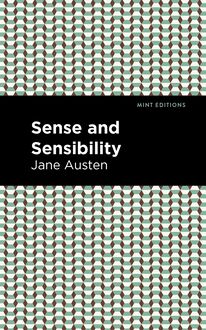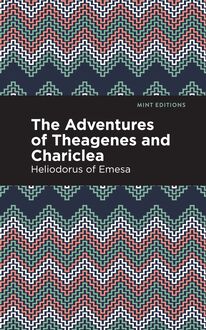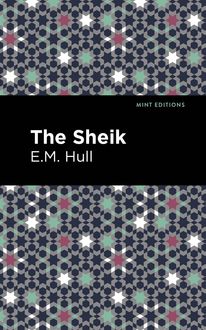-
 Univers
Univers
-
 Ebooks
Ebooks
-
 Livres audio
Livres audio
-
 Presse
Presse
-
 Podcasts
Podcasts
-
 BD
BD
-
 Documents
Documents
-
- Cours
- Révisions
- Ressources pédagogiques
- Sciences de l’éducation
- Manuels scolaires
- Langues
- Travaux de classe
- Annales de BEP
- Etudes supérieures
- Maternelle et primaire
- Fiches de lecture
- Orientation scolaire
- Méthodologie
- Corrigés de devoir
- Annales d’examens et concours
- Annales du bac
- Annales du brevet
- Rapports de stage
La lecture à portée de main
Vous pourrez modifier la taille du texte de cet ouvrage
Découvre YouScribe en t'inscrivant gratuitement
Je m'inscrisDécouvre YouScribe en t'inscrivant gratuitement
Je m'inscrisEn savoir plus
Vous pourrez modifier la taille du texte de cet ouvrage
En savoir plus

Description
The Desert Healer (1923) is a romance novel by English author E.M. Hull. Hull’s novel The Sheikh (1919) sold millions of copies following the release of a 1921 film of the same name. Part of a tradition of Orientalist fiction, The Desert Healer, alongside The Sheik and its sequel, The Sons of the Sheik (1925), have proven both controversial and popular, and now serve as a reminder of the ways in which British subjects imagined themselves in relation to the colonial world.
Abandoned by his wife, heartbroken at the loss of his child, Carew has taken to the desert to work as a mercenary, healer, and mediator between local authority figures. Content to live as a shadow of his former self, Carew forsakes Western civilization for the limitlessness and anonymity of the Algerian desert. Journeying on horseback one day, he hears the screams of a woman in the midst of being kidnapped, and reluctantly saves her life. Disheveled and barely conscious, Marny Gerardine, an Englishwoman, asks for her savior’s name. Pretending to be an Arab, Carew maintains his disguise and, after a night spent resting in his shelter, brings the woman home to Algiers. There, she fears the return of her abusive husband Clyde, who will find a way—as always—to blame her for the attack. Recalling the kindness of her gentle rescuer, she wonders if he is thinking of her, if they will see one another once more. The Desert Healer is romance novel by a master of English popular fiction.
With a beautifully designed cover and professionally typeset manuscript, this edition of E.M. Hull’s The Desert Healer is a classic of English romance fiction reimagined for modern readers.
Sujets
Informations
| Publié par | Mint Editions |
| Date de parution | 02 mars 2021 |
| Nombre de lectures | 0 |
| EAN13 | 9781513277851 |
| Langue | English |
| Poids de l'ouvrage | 1 Mo |
Informations légales : prix de location à la page 0,0500€. Cette information est donnée uniquement à titre indicatif conformément à la législation en vigueur.
Extrait
The Desert Healer
E.M. Hull
The Desert Healer was first published in 1922.
This edition published by Mint Editions 2021.
ISBN 9781513277448 | E-ISBN 9781513277851
Published by Mint Editions ®
minteditionbooks.com
Publishing Director: Jennifer Newens
Design & Production: Rachel Lopez Metzger
Project Manager: Micaela Clark
Typesetting: Westchester Publishing Services
C ONTENTS I II III IV V VI VII VIII IX X
I
T he slanting rays of the afternoon sun, unusually powerful for the time of year, lay warmly on the southern slopes of a tiny spur of the Little Atlas Mountains, glowing redly on the patches of bare earth and naked rock cropping out between the scrubby undergrowth that straggled sparsely up the hill-side, and flickering through the leaves of a clump of olive trees huddled at its base where three horses stood tethered, lazily switching at the troublesome flies with their long tails and shifting their feet uneasily from time to time.
Ten miles away to the westward lay Blidah, Europeanised and noisy, but here was the deep stillness and solitude—though not the arid desolation—of the open desert. The silence was broken only by the monotonous cooing of pigeons and the low murmur of voices.
At a little distance from the picketed horses, out in the full sunshine, a man lay on his back on the soft ground apparently asleep, his hands clasped under his head, his face almost hidden by a sun helmet beneath the brim of which protruded grotesquely a disreputable age-black pipe which even in sleep his teeth held firmly. There were amongst William Chalmers’ patients and intimate acquaintances those who affirmed positively that that foul old meerschaum—treasured relic of his hospital days—ranked second in his affections only to the adored wife who was sitting now near his recumbent figure. Alert and youthful looking in spite of her grey hairs, she lounged comfortably against a sun warmed rock talking animatedly yet softly to the third member of the party, a well set up man of soldierly appearance who sprawled full length at her feet. There was a certain definite resemblance between the two, a similarity of speech and gesture, that proclaimed a near relationship.
Mrs. Chalmers broke off in the middle of a sentence to flap her gauntlet gloves at a swarm of persistent flies. “All the same, I think it’s perfectly disgraceful that you are still a bachelor, Micky,” she said, with emphatic cousinly candour, resuming an argument which had raged for the last half hour. Major Meredith grinned with perfect good humour.
“Haven’t time for matrimony,” he answered lazily, “too busy watching our wily brothers over the Border. And besides,” with a provocative sidelong glance, “marriage is a lottery. We can’t all expect to have Bill’s luck.”
Mrs. Chalmers wrinkled her nose at him disgustedly. “That’s a cliché ,” she said with fine scorn, ignoring the implied compliment, “it merely means that you haven’t yet met the right woman. However—” she laughed mischievously—“there’s still hope for you. A year at home after nearly ten years of exile will probably make you change your mind. It’s a pity you didn’t take your leave sooner, there were some charming girls here last winter. Unfortunately this year’s sample is not recommendable, there is scarcely a really nice girl in the place—always excepting Marny Geradine, and she’s married already—poor child.”
“Why ‘poor child?’ ” asked the soldier, his cousin’s sudden change of tone seeming to call for some comment. “Because—” Mrs. Chalmers paused frowningly, “oh, well, you haven’t seen Lord Geradine or you wouldn’t ask,” she went on soberly, “he’s been away on a shooting trip since you’ve been here—and the air of Algiers has been consequently cleaner,” she added with a little shiver.
Major Meredith hoisted his long limbs up into a sitting position. “A case of a misfit marriage?” he suggested.
“Marriage!” echoed Mrs. Chalmers scornfully, “it isn’t a marriage, it’s a crime. It makes my blood boil to think of it. And yet I hardly know them. He’s impossible, and she is the shyest, most reserved young woman I have ever met. I’d give a great deal to be able to help her, she seems so lonely and there is tragedy staring at you out of her eyes. But of course one can’t do anything. She isn’t the kind of person who makes confidants. I’ve blundered in pretty often during my life when it hasn’t been my business, but I simply shouldn’t dare to speak to Lady Geradine of her affairs—though I am old enough to be her mother. Ugh! let’s talk of something less revolting,” she said hastily, a trace of huskiness in her voice. And for a time she sat silent, staring absently in front of her with eyes that had become very wistful and tender. Then with a shrug and a half sigh she turned again eagerly to her companion. “There is a great deal that wants putting right in the world, Micky,” she said with ungrammatical decisiveness, “but I’m not going to spoil a perfect afternoon by moralising. It has been jolly, hasn’t it? I thought you would like this little valley. So few people seem to know of it, no special inducement to bring them here except peace and quietness which most of the folk wintering in Algiers don’t seem particularly to hanker after. We found it years ago and have camped here often, a haven of refuge when life was especially strenuous or perplexing. It is sad to think that it is our last visit and that in a few weeks we shall have shaken the dust of Algeria off our feet. Five years, Micky, five years that Bill has been marking time in this Back of Beyond because of my stupid lungs. But they are all right now, thank God, and we are off to America as soon as may be to investigate some new nerve treatment Bill is interested in. And when he has picked the brains of his transatlantic confrères we shall come home to end our days in Harley Street in an odour of sanctity and general stuffiness. Won’t London be simply horrid after years of fresh air and open spaces? So, you see, you only just caught us in time. If your leave had been delayed you would have missed us, and I did want you to see our Algerian home. It’s been a hectic fortnight, but I’ve enjoyed every minute of it, and I think we’ve managed to show you all the sights of Algiers and its immediate surroundings. But I do regret one thing—I wish you could have seen our Mystery-man. He is quite a feature of the place. An Englishman who lives like an Arab—you needn’t pull a face, Micky, I don’t mean that he has ‘gone native’ or anything horrid of that kind, he is much too dignified. But he lives in a sort of splendid isolation in the loveliest villa in Mustapha, with a retinue like a Chief’s. And though he is tremendously popular with the French officers and all the important Sheiks who come into Algiers he pointedly avoids his fellow countrymen. And he won’t speak to or even look at a woman! He wears Arab dress most of the time and would pass for a native anywhere. He lives for months together in the desert and descends on Algiers at irregular intervals. One hears that he is in the town, and glimpses him occasionally stalking along with his head in the air rather like a supercilious camel, or riding like a hurricane through the streets in approved Arab style, but that is all that the English community ever see of him. And he has obviously heaps of money—and it’s a gorgeous villa. He might be such an acquisition to the place, but, as it is, he is merely an intriguing personality who is ‘wropt in mystery,’ as old Nannie used to say. Needless to add that in a place like this, where we all discuss our neighbours, he is the subject of endless speculation. But nobody really knows anything about him.”
A faint chuckle came from behind Doctor Chalmers’ big helmet. “I’m sorry to contradict you, Mollie, but that is not strictly accurate,” he said sleepily. His wife sat up with a jerk. “Who knows?” she challenged.
“Well—I do, for one,” replied Doctor Chalmers coolly.
“ You know, Bill—and you’ve never said. How like a man! Really, you are the most exasperating creatures on earth. Fancy having that pearl of information up your sleeve—I’m getting mixed up in my metaphors, but never mind—and withholding it from the partner of your joys and sorrows. I shouldn’t have passed it on if it was a confidence, you know that very well. But since you have admitted so much you can soothe my outraged feelings by imparting a little more.”
Doctor Chalmers laughed and stretched lazily. “Can’t be done,” he replied succinctly.
“Why not? I wouldn’t tell a soul, and Micky is only a bird of passage so it can’t possibly matter what he hears. Don’t be tiresome, Bill, expound.”
But the doctor shook his head. “My dear Mollie,” he expostulated, fingering the old pipe tenderly, “a confidence is a confidence and I can’t break it simply to satisfy your curiosity, natural though it may be. And hasn’t the poor devil been discussed enough? How he lives and what he chooses to do in the desert is, after all, entirely his own affair—nobody else’s business.”
“But, Bill, one hears such queer stories—”
“Queer stories be hanged, m’dear. A silly lot of idiotic gossip, this place is rotten with it. Some fool of a busybody starts a rumour without a tithe of foundation to it and it’s all over the town as gospel truth the next day. Carew’s mode of life, his antipathy to women, and his obvious sympathy with the Arabs make him a bit peculiar. Just because the poor chap has the bad taste to ignore your charming sex all the women have got their knives into him. I bet the queer stories you speak of emanate from your blessed feminine tea parties. Trust a woman to invent a mystery—”
“But, Bill, he is mysterious.”
“Rubbish, Mollie. He prefers to make his friends amongst the French and he hates women—that’s the sum total of his crimes as far as I’m aware. Peculiar, if you like, but certainly not mysterious. And as to the last indictment—” the doctor laughed and winked unblushingly at
-
 Univers
Univers
-
 Ebooks
Ebooks
-
 Livres audio
Livres audio
-
 Presse
Presse
-
 Podcasts
Podcasts
-
 BD
BD
-
 Documents
Documents
-
Jeunesse
-
Littérature
-
Ressources professionnelles
-
Santé et bien-être
-
Savoirs
-
Education
-
Loisirs et hobbies
-
Art, musique et cinéma
-
Actualité et débat de société
-
Jeunesse
-
Littérature
-
Ressources professionnelles
-
Santé et bien-être
-
Savoirs
-
Education
-
Loisirs et hobbies
-
Art, musique et cinéma
-
Actualité et débat de société
-
Actualités
-
Lifestyle
-
Presse jeunesse
-
Presse professionnelle
-
Pratique
-
Presse sportive
-
Presse internationale
-
Culture & Médias
-
Action et Aventures
-
Science-fiction et Fantasy
-
Société
-
Jeunesse
-
Littérature
-
Ressources professionnelles
-
Santé et bien-être
-
Savoirs
-
Education
-
Loisirs et hobbies
-
Art, musique et cinéma
-
Actualité et débat de société
- Cours
- Révisions
- Ressources pédagogiques
- Sciences de l’éducation
- Manuels scolaires
- Langues
- Travaux de classe
- Annales de BEP
- Etudes supérieures
- Maternelle et primaire
- Fiches de lecture
- Orientation scolaire
- Méthodologie
- Corrigés de devoir
- Annales d’examens et concours
- Annales du bac
- Annales du brevet
- Rapports de stage
